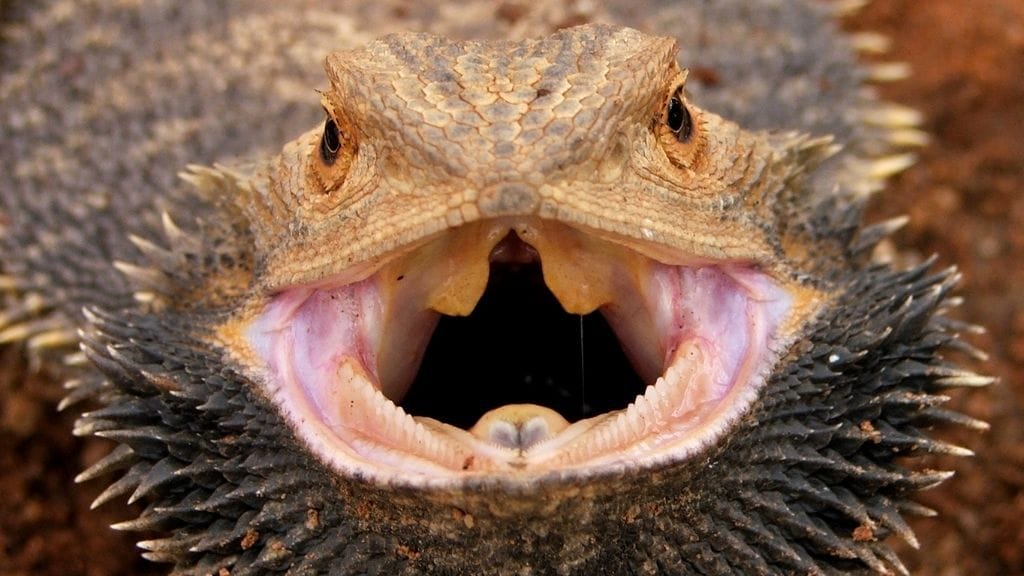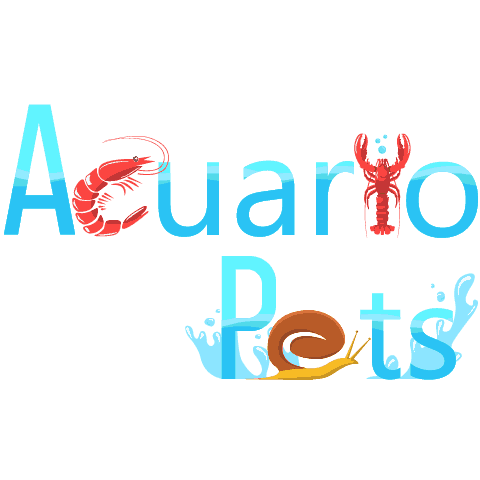This post was created with help from AI tools and carefully reviewed by a human (Muntaseer Rahman) . For more on how we use AI on this site, check out our Editorial Policy.
Check Out These FREE Tools We Made JUST For You!
Are Bearded Dragons Poisonous? [Alarming Statistics]

Ever wondered if that scaly, gentle-looking bearded dragon could pose a hidden threat? You’re not alone.
Recent statistics reveal some surprising facts about these popular pets, and you won’t believe what they say about their “poisonous” potential.

Are Bearded Dragons Dangerous To Humans?
Bearded dragons are not dangerous to humans if you follow basic hygiene rules like washing your hands thoroughly before and after handling, cleaning, and feeding your bearded dragon.
Bearded dragons carry tiny amount of poison that is secreted from their venom gland. But bearded dragons are not in any way poisonous to humans at all because the poison is not enough powerful to do any affect on a human body.
However, that doesn’t mean bearded dragons are completely safe for humans. If you are not careful and forget to follow the basic hygiene rules, then you can get into trouble with a bearded dragon.
Salmonella
Salmonella is a type of bacteria that is often present on reptiles including bearded dragons, turtles, frogs, etc. Basically, Salmonella is much more dangerous to humans than the poison of bearded dragon.
If salmonella gets inside your body from the bearded dragon, it can cause serious disease and illness. In such a case, you should go to a prescribed doctor immediately. Salmonella is nothing to joke about and you’ll know why in the next section of the article.
Fortunately, it is really easy to prevent salmonella transmission if you follow some basic common sense and hygiene like:
- Washing your hand with soap thoroughly before and after handling the bearded dragon. This is actually applicable for any pets because animals can carry germs and diseases.
- After cleaning the bearded dragon enclosure and feeding them, clean your hands.
- Make sure the poop of the bearded dragon doesn’t get in contact with your mouth. I know that’s very unlikely to happen, but just keep it in mind. The poop has higher chance of carrying salmonella or other diseases. Don’t even get your face near the poop for any reason.
Pinworms
Bearded dragons carry a common parasite called pinworms. Though they are not deadly like salmonella, you should try to avoid them at any cost. Fortunately, preventing Pinworms transmission is really easy and similar to the Salmonella steps we talked about earlier. Follow hygiene rules and you should be good to go.
Now, to prevent your bearded dragon from getting pinworms, it is always recommended to not feed wild insects or anything directly from the wild. Insects from the wild can carry diseases or any unknown germs that can pose a threat to your bearded dragon.
That’s why I always recommend to feed your bearded dragon a reputable insect food from a notable brand. My recommendation will be feeding Fluker’s Bearded Dragon Medley Treat. I really like this one as it contains crude protein, crude fat, and crude fiber.
If you follow some basic hygiene rules, there is nothing to worry about your bearded dragon. Salmonella, Pinworm, or any other parasite can be prevented by washing your hands thoroughly before and after doing anything related to the bearded dragon.

Bearded Dragon Danger? Recent News & Statistics
Salmonella is nothing to joke about and you’ll understand why after going through this alarming news:
A newborn girl got hospitalized after getting infected with salmonella from a bearded dragon in 2017. Doctors said it could have been a near-death event, but fortunately, the girl lived.
In 2020, there have been reports of 13 salmonella infections across 8 states which were transmitted from bearded dragons and hedgehogs.
Report from CDC
Does it mean bearded dragons are bad pets and you should never get one? Absolutely not!
Bearded dragons are awesome pets and very docile. Reports of injuries caused by bearded dragons are very rare. Just be smart while handling a bearded dragon and wash your hands. If you can apply these basic common senses, there is nothing to worry about a bearded dragon.

Your Beardie Has More to Say…
This article tells you WHAT to do, but do you know WHY your dragon needs it? Or what they’re thinking when you do it wrong?
Read the full rant (all 20 chapters of it) in: “What Your Bearded Dragon Wishes You Knew”
*Told by a very frustrated beardie who’s had ENOUGH of watching you guess.*
Do Bearded Dragons Have Venom Glands?
Bearded Dragons have venom glands. In most bearded dragon species, only a single venom gland is present. However, Eastern Bearded Dragons posses two venom glands.
Bearded dragons have venom glands in their jaws. When they bite, the gland secretes a mild venom that is enough to kill small prey like insects. However, this tiny amount of poison can’t do any harm at all to a human body.
Even though the venom can’t do any harm, if you ever get bitten by a bearded dragon, you might experience a little bet of pain, swelling or redness. However don’t get worried as everything will get back to normal pretty quickly.
If the bite seems serious and pierced through your skin, you should wash the bitten area with soap immediately. In case of bleeding (very rare from a bearded dragon bite), wash the bitten area and consult with a doctor.
Is It Safe To Kiss A Bearded Dragon?
It is not safe to kiss a bearded dragon. Bearded dragons and most other reptiles carry a bacteria called Salmonella. By letting your mouth in contact with the bearded dragon, you might get in contact with salmonella and get seriously ill.
I know it is really hard to refrain yourself from kissing the cute beardie on your lap. But seriously you can’t start kissing them for the safety of you and your family. No matter how disappointing it seems, reptiles generally carry bacteria that can be very dangerous to humans.
So, stop kissing your bearded dragon. Even stop bringing your mouth near the bearded dragon’s face or skin. This is important for both you and your bearded dragon.
What Happens If A Bearded Dragon Bites You?
When a bearded dragon bites you, you might experience some swelling, redness, and a bit of pain in the bitten area. But the effects clear up pretty soon and you might not even feel the pain after some minutes.
Bearded dragons biting their owner is actually very rare as beardies are very docile creatures, especially the captive ones. However, if you fail to understand the behavior of your bearded dragon, then sometimes you may irritate him or make him angry. In such cases, a bite from your beardie is not that surprising.
After a bearded dragon bites you, you might see the bitten area is getting swollen and reddish. This happens because bearded dragons have a venom gland and they secrete a tiny amount of venom to kill prey animals. This tiny amount of poison is practically nothing for affecting a human body. So, even if you get bitten by a beardie, there is nothing to worry about.
But of course, there are somethings you should follow after getting bitten by any pet, not only a bearded dragon:
- Check the bitten area. Has the teeth pierced through the skin? If not, that’s good. If it has and there is bleeding, you should do the following.
- Wash the bitten area thoroughly with soap that has antibacterial features. This will clean way any bacteria or germ that has been transmitted from the bearded dragon.
- If the bite looks serious, consult with a doctor immediately.
Can A Bearded Dragon Bite Hurt You?
A bearded dragon’s bite can give you a slight stinging pain. But the pain is not as severe as a cat bite or a dog bite. Bearded dragon bites are a little bit painful because when they bite, their jaw secretes a tiny amount of venom.
Are Bearded Dragons Poisonous To Dogs & Cats?
Bearded dragons carry salmonella and other parasites which can get transmitted to a dog or cat. However, it is very unlikely for a healthy dog or cat to get sick from a bearded dragon.
Also, the venom of bearded dragon is only powerful enough to kill small insects and prey. This tiny portion of venom can do nothing to a dog or cat, let alone a human.
Final Verdict
So, are bearded dragons poisonous? Yes they are poisonous to little insects and prey. However, bearded dragons are not poisonous to humans at all. In terms of safety, you need to be cautious about getting salmonella from your bearded dragon and follow all the basic hygienic rules.
About Author
Hello, I’m Muntaseer Rahman, the owner of AcuarioPets.com. I’m passionate about aquarium pets like shrimps, snails, crabs, and crayfish. I’ve created this website to share my expertise and help you provide better care for these amazing pets.
Disclaimer
This site is owned and operated by Muntaseer Rahman. AcuarioPets.com is a participant in the Amazon Services LLC Associates Program, an affiliate advertising program designed to provide a means for sites to earn advertising fees by advertising and linking to Amazon.com. This site also participates in other affiliate programs and is compensated for referring traffic and business to these companies.

